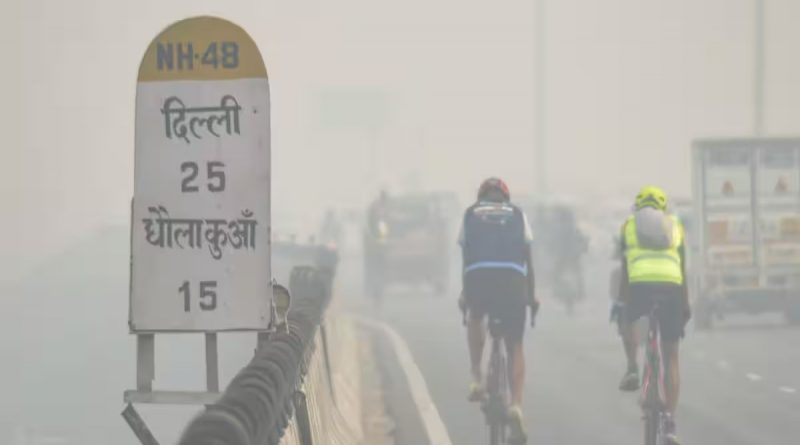Gasping for Breath
Dear Readers,
Wishing you a joyous festive season! Over the past seven decades, we’ve witnessed groundbreaking changes in the medical field, with Indian doctors and experts contributing significantly to global advancements. Double Helical, committed to societal betterment, continues its mission by raising awareness and making voluntary contributions in education, health, human rights, and social services. Our magazine serves as a platform to acknowledge innovations, individuals, products, and services transforming India’s healthcare sector, paving the way for affordable, high-quality, and inclusive healthcare.
In this issue, we delve into the concerted efforts and expert perspectives aimed at combating pollution in India, particularly in Delhi and its surroundings, grappling with persistent air quality challenges. From global initiatives to national programs, you can explore comprehensive strategies addressing environmental and health concerns arising from the air quality crisis.
New Delhi consistently ranks among the world’s most polluted cities, facing annual spikes in pollution levels exacerbated by calm winds and low temperatures. The World Health Organization (WHO) advocates refined outdoor particle pollution concentrations, yet many global cities fall short. The consequences are dire, with air pollution causing seven million annual fatalities and a 67.7% surge in particulate pollution from 1998 to 2021, reducing average life expectancy by 2.3 years.
Apart from the human toll, poor air quality leads to lower productivity, increased absenteeism, diminished asset productivity, and higher healthcare costs. The estimated annual cost of air pollution in India is a staggering $95 billion, constituting 3.3% of the country’s GDP.
Amidst these challenges, we bring you stories that illuminate rays of hope and progress in the healthcare landscape. Our Cover Story explores the advent of Trans Oral Robotic Surgery (TORS), a groundbreaking procedure harnessing the power of cutting-edge robotic technology to perform intricate surgeries within the oral cavity and beyond. This minimally invasive technique has gained prominence, especially in the treatment of head and neck cancers and obstructive sleep apnea. With each advancement, TORS takes us one step closer to a future where complex surgeries are conducted with greater efficiency, less trauma, and ultimately, superior patient outcomes.
In our Special Story, we shift our focus to the pressing concern of patient safety amidst phenomenal pharmaceutical advancements. Medicines, while powerful, are double-edged swords, leaving potentially undetected adverse effects. In view of the critical need for a robust pharmacovigilance system and stringent drug regulations, it’s time to revamp India’s drug regulatory system, prioritise the safety aspect in healthcare, and unite all stakeholders. DR AMITAV BANERJEE provides valuable insights into the necessary steps to ensure patient well-being.
In this issue, we also spotlight the Ministry of Health and Family Welfare’s recent decision to lower the NEET PG cut-off to zero percentile, sending shockwaves through the medical community. This seismic shift raises questions about the future of medical education and healthcare in the country.
With a zero percentile benchmark, even those with negative marks in NEET-PG can now enrol in postgraduate courses. This decision’s repercussions will unfold over the years, significantly impacting healthcare quality and the prospects of emerging medical practitioners. The move has divided the medical community, with some welcoming it and others decrying it as a mockery of the healthcare system.
Experts question the rationale behind this decision, highlighting the substantial investment of time and finances that medical students make to complete their MBBS. This decision raises concerns about a potential conflict of interest, as politicians who own private medical colleges play a role in shaping decisions affecting the entire medical education landscape.
Lowering the standards of medical education to such an extent marks an unprecedented departure from history, prompting doubts about the quality of education and patient care. The recent amendment allowing medical graduates with zero positive marks to enter postgraduate courses has sparked discussions among doctors and caught media attention through editorials and special stories.
This issue is packed with many more interesting and thought-provoking stories. Happy reading!
.
Thanks and regards
Amresh K Tiwary,
Editor-in-Chief

